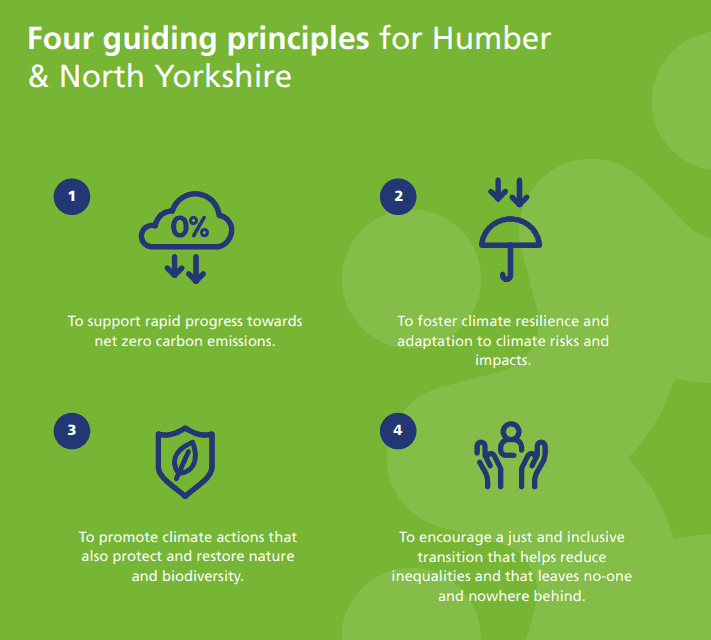
Climate Change and Sustainability
Climate change poses the 21st century’s greatest global health threat, yet combating it presents an unparalleled opportunity. Net zero healthcare can enhance patient outcomes, reduce inequalities, cut costs and shrink our carbon footprint.
Climate change imperils health fundamentals, directly affecting patients, the public and the NHS. Its impacts include more frequent extreme weather, worsened air quality, disrupted food systems, increased infectious diseases, pandemic risks and mental health issues. These effects disproportionately burden vulnerable populations, exacerbating health disparities.
Sustainable healthcare aims to reduce carbon emissions whilst improving care. This involves promoting health, preventing illness, empowering patients, streamlining pathways and adopting low-carbon alternatives. These measures support our core mission: enhancing population health and reducing inequalities.

The NHS contributes roughly 5% of the UK’s carbon footprint. In 2020, it pledged to become the world’s first net zero health service, addressing climate change and safeguarding health for current and future generations.
To support this ambitious goal, we have developed a comprehensive Green Plan.
To support our National Health Service, Net Zero ambition, we have developed our Green Plan, which is underpinned by four guiding principles and encompasses eleven areas of focus.
Our Partnership achievements
Since 2021 five Humber and North Yorkshire Trusts secured £80million of Public Sector Decarbonisation Scheme (PSDS) funding aimed at reducing carbon
emissions in public sector buildings through energy efficiency and low carbon heat upgrades.
- Castle Hill – Project “Field of Dreams” saw the installation of 11,000 solar panels providing more than 5MW of power to the hospital site
- HNY worked with Yorkshire and Humber Academic Health Science Network (YHAHSN) to develop “Sheep Shed” green award programme – six projects awarded funding
- Hull University Teaching Hospitals (HUTH) wins 2022 HSJ Partnership Award “Environmental Sustainability Project of the Year” for the SENTINEL asthma project
- HNY Climate Change and Sustainability Group (monthly) and HNY Sustainable Medicines Group established
- Dedicated Net Zero Clinical Lead appointed
- Humber Generalist School as a regional “Trailblazer” for sustainability
- New HNY ICB asthma guidance developed to improve asthma care which prioritises lower carbon inhalers
Green Plans
All of the following organisations in Humber and North Yorkshire have published green plans.
Humber and North Yorkshire Health and Care Partnership – Green Plan 2023 – 2025
Hull University Teaching NHS Foundation Trust – Green Plan – Becoming Net Zero by 2030
Humber Teaching NHS Foundation Trust – Green Plan 2022 – 2025
Northern Lincolnshire and Goole NHS Foundation Trust – The Green Plan 2021 / 2022
York and Scarborough Teaching Hospitals NHS Foundation Trust – Green Plan – 2021 – 2027
Rotherham Doncaster and South Humber NHS Foundation Trust – Green Sustainability Plan 2022- 2027
Harrogate and District NHS Foundation Trust – Green Plan 2022 – 2025
Tees Esk and Wear Valley NHS Foundation Trust – Green Plan 2022 – 2025
Yorkshire Ambulance Service NHS Trust – Green Plan 2020 – 2025
East Midlands Ambulance Service NHS Trust – Interim Green Plan 2021 -2022
City Healthcare Partnerships (CHCP) Green Plan – 2021 – 2025 Action Plan
NAViGO Health and Social Care CIC Green Plan – 2021 – 2025
Green Primary Care
Net Zero Primary Care can improve health, reduce health inequalities and reduce the carbon footprint across the entire ICS health and care system.
To learn more about win-win solutions for patients and planet visit Greener Practice. To access lots of useful resources and connect with others locally, visit the information and resources at Greener Practice York and North Yorkshire.
You can find out more about our work on Green Primary Care – Humber and North Yorkshire

